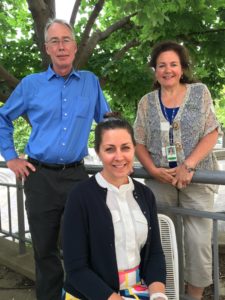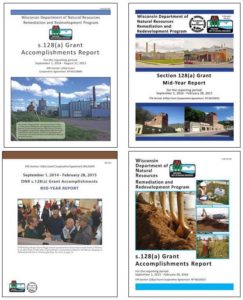Alyssa Sellwood, a Hydrogeologist with the Remediation and Redevelopment Program and the leader of the dry cleaning and vapor intrusion teams, will present the next Issues & Trends training event on Wednesday, August 9, at noon. No pre-registration is required.
Sellwood’s presentation will be an overview of forthcoming additions and modifications to the RR Program’s existing guidance on vapor intrusion – RR 800 – Addressing Vapor Intrusion at Remediation and Redevelopment Sites in Wisconsin. We originally published the guidance in 2010, but revisions are necessary as knowledge and understanding of vapor intrusion has grown. The guidance is being readied for public comment and includes such updates as commissioning and inspecting vapor mitigation systems, mitigating vapor risk in new construction, and evaluating and addressing potential vapor risk in large commercial and industrial buildings.
The training session details are:
- Date: August 9, 2017
- Time: 12:00 – 1:00 p.m.
- Join by phone: 1-855-947-8255, passcode 6612745#
- Questions in advance can be sent to DNRRRComments@wisconsin.gov



 A handful of Wisconsin communities, counties and entities will put to use recent brownfields awards from the US EPA. The awards are for assessment or cleanup activities and are part of the 279 awards given to communities across the nation, totaling $56.8 million.
A handful of Wisconsin communities, counties and entities will put to use recent brownfields awards from the US EPA. The awards are for assessment or cleanup activities and are part of the 279 awards given to communities across the nation, totaling $56.8 million. Semi-annual reporting for the period of January 1, 2017 to June 30, 2017 is due August 8, 2017. Semi-annual reporting is required of responsible parties (RPs) for all “open” sites, including those sites the DNR formerly classified as “conditionally closed,” in the BRRTS online database. Consultants may submit these reports on behalf of the RPs.
Semi-annual reporting for the period of January 1, 2017 to June 30, 2017 is due August 8, 2017. Semi-annual reporting is required of responsible parties (RPs) for all “open” sites, including those sites the DNR formerly classified as “conditionally closed,” in the BRRTS online database. Consultants may submit these reports on behalf of the RPs.